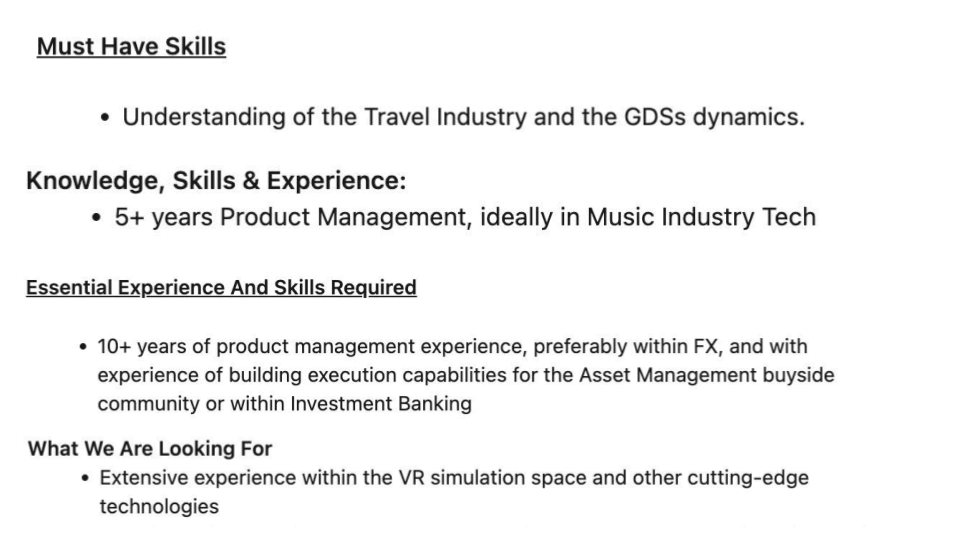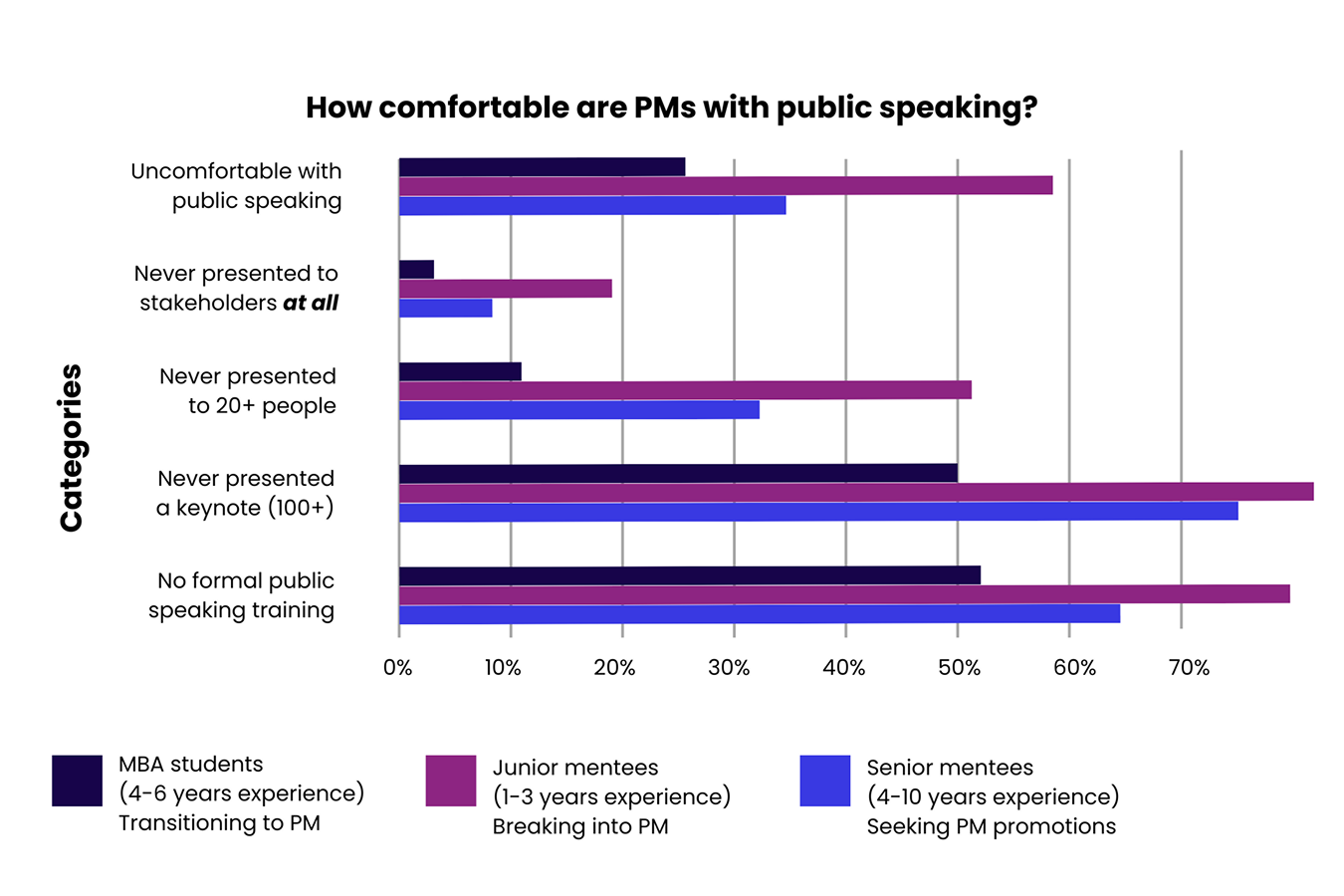What sort of product expert do you want to be? In the first of a regular series, Mind the Product's own Emily Tate offers some insights for product people pondering their career choices
One of the most common questions I get when talking to product managers about their career path is, should I become an expert in a specific domain? Should I go deep into AI, or FinTech, or travel? Or should I try to work in different types of companies?
The answer, of course, is the product manager’s standard… it depends.
As I’ve watched many careers unfold, I see two general types of career paths: the domain expert, and the practice expert. Neither path is inherently better than the other – they are just different ways of navigating your career.
The domain expert
I started my career in travel tech, and immediately realized I was in the presence of some deep subject matter knowledge. Many people working in my company had started their career working for an airline or travel agency directly, and then moved into building and selling software. They knew the ins and outs of how their users worked day to day and could dig deeply into any topic in travel. This is the domain expert – they focus on the industry first.
The upside

It is easy to see the value in this type of career path. You become known for your expertise in a particular industry, which can bring interesting opportunities your way. Domain experts tend to move between different companies in the same industry, which often means your former colleagues are working in organizations you might be interested in joining. This allows you to use your network to get introductions, or maybe even get a cold call from an old work friend who has a job that is a perfect fit for you. At minimum, you are likely to get a look from recruiters when applying for roles. Particularly in industries with a lot of complexity, candidates who already understand the landscape are very attractive.
There's a facet of being a domain expert that can be either a positive or a negative, depending on your desires: domain experts often switch roles within the industry. This means you might be a product manager for a time, then move into sales, then spend a bit of time in product marketing, maybe then move into a business development role. Your constant is the industry, not necessarily the practice. This could be really attractive if you enjoy trying different functions. It also doesn’t mean you have to move into different roles – it is absolutely possible to stay a product manager in a single industry – it is just a common thread I’ve seen.
The downside
While there are a lot of positive aspects of being a domain expert, it does carry some downsides. The most obvious is that you get pigeonholed into a specific industry. When your industry is booming, this isn’t a bad thing at all. But when your industry as a whole has a downturn and you look for a new job, it can be difficult to find a place to land. It also can be hard if you just tire of your particular domain and want to try something new.
Another downside of domain expertise is that you tend to work on the same problems over and over again. I left the travel industry in 2016, and recently had a discussion with an old colleague about what they were working on. He is with a different company now, and the challenges he faces are some of the exact same things we talked about over five years ago. This feeling of repetition might be frustrating and demotivating.
The practice expert
After leaving travel, I moved into product consulting. By nature, people in this role are product experts – they have deep knowledge of product practices, and know how to apply them to solve problems in any domain. They can quickly get up to speed with enough information to understand the domain, and know how to bring together the right mix of subject matter experts to fill in the gaps and move toward progress. This is the practice expert – they focus on the practice first.
The upside
Practice experts can have a really fun and varied career path. You may spend a few years working in e-commerce, then some time in gaming, then into a B2B procurement system, then make your way into an airline… the possibilities are endless. You have the opportunity to solve different types of problems and exercise different muscles as you experience different industries. You also get to learn about different industries, and given that product managers tend to be curious folks, this can be really appealing.
With broad experience, you also start to bring a different perspective to a product team. While domain experts understand the industry deeply on day 1, sometimes their knowledge can bring in bias or overlook things that an outsider might notice. Practice experts might have seen similar situations in different contexts, or be able to spot a pattern or theme that an industry insider is too close to see. You also have the opportunity to introduce new techniques into a team that might not have as many product tools at their disposal. It is really fun to see teams try new practices and approach their problems in different ways.
The downside
The most obvious upside for a domain expert is also the most obvious downside for a practice expert: it might be harder to get get a foot in the door in some industries. Particularly if you don’t have any high profile brands on your CV, recruiters might not naturally look at you first. This doesn’t mean you can’t get a look – you just have to make sure your CV clearly reflects your skills, and might need to take extra care in a cover letter to illustrate what you can bring to the table.
If you consider yourself a practice expert it might also be hard to is figure out when you might cross into domain expert territory. You can find yourself in an awkward spot where you aren’t quite deep enough in a domain to be considered a domain person to industry insiders, but to people outside that industry, you look like a domain expert and get labeled as such. As you move through your career, it’s important to take a step back and look at the developing narrative. It can help you determine if you should perhaps target a different domain as you look for your next role.
A final word
As with most categorizations, this split is not perfect. It is a very basic breakdown at the highest level, but can be useful in helping you think about how you move through your career. It’s also worth noting that deciding you want to focus on one or the other is not an irreversible decision. You can spend over a decade in a single industry and then decide you’d like to try something different and shift into more of a practice expert. Or you can jump between industries for several roles, and then realize you really have a passion for a specific domain and decide to go deep.
Regardless of whether you decide you’re more a domain expert or a practice expert, the most important thing I’d like to encourage if you have the ability to do so, is to think intentionally about your career as you look at your next steps. What are you aiming for? What kind of experience would you like to gain next? You might not always make the best decision about your next role, and something that seemed perfect may not end up being what you expected, but you’re crafting your story and building your future narrative every step of the way.
Look out for further thoughts and opinions on product practice from Emily next month!







